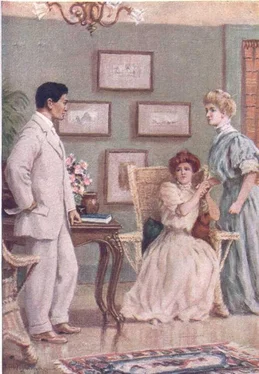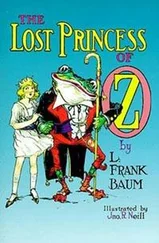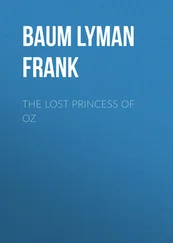L. Baum - The Last Egyptian
Здесь есть возможность читать онлайн «L. Baum - The Last Egyptian» весь текст электронной книги совершенно бесплатно (целиком полную версию без сокращений). В некоторых случаях можно слушать аудио, скачать через торрент в формате fb2 и присутствует краткое содержание. Год выпуска: 2019, Издательство: epubBooks Classics, Жанр: Прочие приключения, на английском языке. Описание произведения, (предисловие) а так же отзывы посетителей доступны на портале библиотеки ЛибКат.
- Название:The Last Egyptian
- Автор:
- Издательство:epubBooks Classics
- Жанр:
- Год:2019
- ISBN:нет данных
- Рейтинг книги:4 / 5. Голосов: 1
-
Избранное:Добавить в избранное
- Отзывы:
-
Ваша оценка:
- 80
- 1
- 2
- 3
- 4
- 5
The Last Egyptian: краткое содержание, описание и аннотация
Предлагаем к чтению аннотацию, описание, краткое содержание или предисловие (зависит от того, что написал сам автор книги «The Last Egyptian»). Если вы не нашли необходимую информацию о книге — напишите в комментариях, мы постараемся отыскать её.
The Last Egyptian — читать онлайн бесплатно полную книгу (весь текст) целиком
Ниже представлен текст книги, разбитый по страницам. Система сохранения места последней прочитанной страницы, позволяет с удобством читать онлайн бесплатно книгу «The Last Egyptian», без необходимости каждый раз заново искать на чём Вы остановились. Поставьте закладку, и сможете в любой момент перейти на страницу, на которой закончили чтение.
Интервал:
Закладка:
Aside from their mutual prodigality, however, the two men had little in common. The father was reckless, open–handed and careless of consequences, indulging himself frankly in such dissipations as most men are careful to hide. The son was reserved and sullen, and posed as a man eminently respectable, confining his irregularities mainly to the gaming table. Between them they had loaded the estates with mortgages and sold every stick and stone that could be sold. At last the inevitable happened and they faced absolute ruin.
There seemed no way out of their difficulties. The viscount had unfortunately married a wife with no resources whatever, although her family connections were irreproachable. The poor viscountess had been a confirmed invalid ever since her baby girl was born, some eighteen years before, and was merely tolerated in the big, half–ruined London mansion, being neglected alike by her husband and her father–in–law, who had both come to look upon her as a useless incumbrance. More than that, they resented the presence of a young, awkward girl in the house, and for that reason banished Aneth at twelve to a girl’s school in Cheshire, where she had remained, practically forgotten, until her eighteenth year. Then the lady preceptress shipped her home because her tuition fee was not promptly paid.
Aneth found her mother so confirmed in the selfish habits of the persistent invalid, that the girl’s society, fresh and cheery though it proved, only irritated her nerves. She found her father, the morose viscount, absolutely indifferent and unresponsive to her desire to be loved and admitted into his companionship. But old Lord Roane, her grandfather, had still a weakness for a pretty face, and Aneth was certainly pretty. Moreover, she was sweet and pure and maidenly, and no one was better able to admire and appreciate such qualities than the worn–out roué whose life had been mainly spent in the society of light women. So he took the girl to his evil old heart, and loved her, and tried to prevent her discovering how unworthy he was of her affection. The love for his granddaughter became the one unselfish, honest love of his life, and it assisted wonderfully in restoring in him some portion of his long–lost self–respect.
Aneth, finding no other friend in the gloomy establishment that was now her home, soon became devoted, in turn, to her grandsire, and although she was shrewd enough, in spite of her inexperience, to realize that his life had been, and still was, somewhat coarse and dissipated, she fondly imagined that her influence would, to an extent, reclaim him—which it actually did, but only to an extent.
There was little concealment in the family circle as to the state of their finances. Father and son quarreled openly about the division of what little money could be raised on the overburdened estates, and the girl was not long in realizing the difficulties of their position. If the viscount had nothing to gamble with, he became insufferable and almost brutal in his manner; if Lord Roane could not afford to dine at the club and amuse himself afterward, he was irritable and abusive to all with whom he came in contact, save only his granddaughter. The household expenses were matters of credit, and the wages of the servants were greatly in arrears.
And so, when the affairs of the family had become well–nigh desperate, the big blue envelope with the government stamp arrived, and like magic all their difficulties dissolved.
A newly appointed cabinet minister—a man whom Lord Roane had reason to consider an enemy rather than a friend—had for some surprising and unknown reason interested himself in Roane’s behalf, and the result was a diplomatic post for him in Egypt under Lord Cromer, and a position for the viscount in the Egyptian Department of Finance. The appointments were lucrative and honorable, and indicated the Government’s perfect confidence in both father and son.
Lord Roane was astounded. Never would he have dared demand such consideration, and to have these honors thrust upon him at a time when they would practically rescue his name and fortune from ruin was almost unbelievable.
He accepted the appointment with alacrity, joyful at the prospect of a winter in gay Cairo. Roger shared his father’s felicity, because the gaming in the oriental city would be more fascinating than that of London, where people had begun to frown when he entered a room. The invalid viscountess hoped Egypt would benefit her health. Aneth welcomed any change from the horrible condition in which they had existed latterly.
“Grandfather,” said she, gravely, “our gracious Queen has given to you and to my father positions of great trust. I am sure that you will personally do your duty loyally, and with credit to our honored name; but I’m afraid for father. Will you promise me to keep him from card–playing and urge him to lead a more reputable life?”
“Phoo! Nonsense, child. Roger will behave himself, I am sure, now that he will have important duties to occupy him. The Minister of Finance will keep him busy, never fear, and he will have neither time nor inclination for folly. Don’t worry, little one. Our fortunes have changed; we shall now be able to pay the butcher and baker and candlestick–maker, and there is little doubt the Consinors will speedily become the pride of the nation. Ahem! Tell Luke, my dear, to fetch my brandy and soda as you go out. And, stay! Remember, we are to leave London on the fourth of October and you must have both your mother and yourself ready to depart promptly. I depend upon you, Aneth.”
She kissed him and went away without further comment, reflecting, with a sigh, that her fears and warnings were alike unheeded.
Lord Roane, left to himself, began wondering anew to what whim of fate he owed his good fortune. Really, there seemed no clue to the mystery.
It was a complicated matter, even to one on the inside, so it is no wonder the old nobleman failed to comprehend it.
Many years ago the cabinet minister and Lord Roane had been intimate friends; then the former fell madly in love with a little Egyptian princess who was the rage of the London season, and sought her hand in marriage. Roane also became enamored of the beautiful Hatatcha, and went so far as to apply for a divorce from his wife, that he might wed her. The fascinating Egyptian, guileless of European customs and won by the masterful ardor of Roane, chose him from among all her suitors, and casting aside the honest love of Roane’s friend, fell unconsciously into the trap set for her and became the mistress of the man who promised her such rare devotion. Presently, however, the heartless roué tired of his easy conquest and carelessly thrust her aside, although the divorce for which he had applied on false representations had now been granted, and he was free to marry his victim had he so wished.
All London was indignant at his act at the time, and no one was more enraged than Roane’s former friend. He searched everywhere for the Egyptian princess when Hatatcha fled from London to hide her shame, and on his return from the unsuccessful quest, he quarreled with Roane and would have killed him had not mutual friends interposed.
Time had, of course, seared all these old wounds, although the hatred between the two men would endure to the grave. The betrayer was careless of criticism and wealthy enough to defy it. The man who had truly loved was broken–hearted, and from that time avoided all society and especially that of women. But he plunged into politics for diversion, and in that field won for himself such honor and renown in future years that at last he became a member of Her Majesty’s cabinet, second in power only to the Premier himself.
Thus Prince Kāra found him. The Egyptian had only to use the magic name of Hatatcha to secure a private audience with the great man, who listened quietly while Kāra demanded vengeance upon his grandmother’s betrayer.
Читать дальшеИнтервал:
Закладка:
Похожие книги на «The Last Egyptian»
Представляем Вашему вниманию похожие книги на «The Last Egyptian» списком для выбора. Мы отобрали схожую по названию и смыслу литературу в надежде предоставить читателям больше вариантов отыскать новые, интересные, ещё непрочитанные произведения.
Обсуждение, отзывы о книге «The Last Egyptian» и просто собственные мнения читателей. Оставьте ваши комментарии, напишите, что Вы думаете о произведении, его смысле или главных героях. Укажите что конкретно понравилось, а что нет, и почему Вы так считаете.












